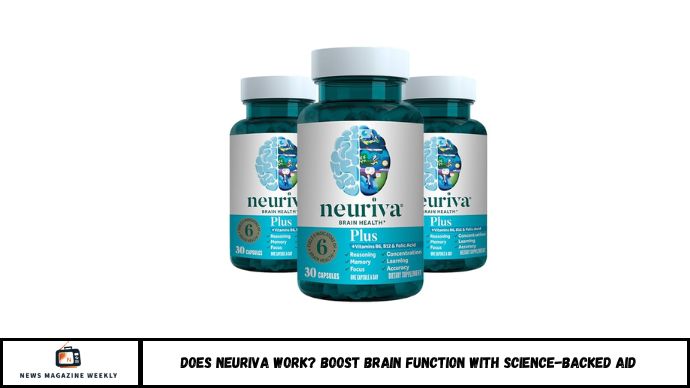Combining zinc and quercetin supplements may significantly enhance immune system function. Quercetin acts as a zinc ionophore, helping deliver zinc into cells, where it supports antiviral activity and reduces inflammation. This article explores how these nutrients work together, their benefits, recommended dosages, and safety guidelines.
Zinc and quercetin are two potent antioxidants known for their immune-boosting properties. While zinc is widely recognized for its role in fighting colds and flu, it also supports many vital bodily functions and is essential for every cell—yet our bodies cannot produce it on their own.
Quercetin, although less well-known, surged in popularity during the pandemic due to its promising antiviral and anti-inflammatory effects. Like zinc, it must be obtained through diet or supplements. Taken together, zinc and quercetin form a powerful combination that may significantly enhance immune system health.
Could Two Common Supplements Improve Your Immunity?
In a time when immune health is more important than ever, millions of people are looking for natural ways to strengthen their body’s defenses. Two popular supplements, zinc and quercetin, have emerged as a powerful combination for supporting the immune system.
But why take them together? Is there real science behind this pairing?
This article will explain:
- What zinc and quercetin are
- How they support immunity individually
- Why they work better together
- How to use them safely and effectively
What Is Zinc and Why Does the Body Need It?
Zinc is an essential trace mineral involved in numerous bodily processes, especially those related to immunity.
Key roles of zinc:
- Supports the development and activation of immune cells
- Promotes wound healing and tissue repair
- Acts as an antioxidant, protecting cells from oxidative damage
- Helps regulate inflammation
According to the World Health Organization, approximately 17% of the global population is deficient in zinc, particularly in older adults and those with chronic illnesses.
What Is Quercetin and What Are Its Benefits?
Quercetin is a flavonoid naturally found in apples, onions, berries, and leafy greens. It is widely recognized for its anti-inflammatory and antioxidant properties.
Health benefits of quercetin:
- Reduces inflammation
- Neutralizes free radicals
- Supports cardiovascular and respiratory health
- Demonstrates antiviral activity in early lab studies
One of its most important features is its ability to act as a zinc ionophore—a compound that helps transport zinc across cell membranes, enhancing its effectiveness.
Zinc and Quercetin: A Synergistic Immune Support Duo
On their own, both nutrients are beneficial. But taken together, zinc and quercetin work synergistically to enhance immune function.
Why the combination works:
- Zinc needs help entering cells to perform its antiviral role.
- Quercetin helps shuttle zinc into the cells more efficiently.
- Inside the cell, zinc can inhibit the replication of certain viruses and support cellular immune responses.
A 2021 study in Frontiers in Immunology found that increasing intracellular zinc levels with the help of ionophores like quercetin significantly improved the body’s antiviral defense.
How to Take Zinc and Quercetin Effectively
Recommended daily dosages:
- Zinc: 15–30 mg of elemental zinc
- Quercetin: 500–1,000 mg
Take both supplements with food to enhance absorption and reduce gastrointestinal discomfort. Some supplement brands now offer combined zinc and quercetin capsules for convenience and optimal dosing.
Safety Tips and Potential Side Effects
Both supplements are generally considered safe, but excessive or long-term use can lead to side effects.
Possible issues:
- Too much zinc (over 40 mg/day) can cause nausea, lower copper levels, and impair immune function.
- High doses of quercetin may cause headaches or mild kidney strain in rare cases.
People taking medications, pregnant or nursing individuals, and those with chronic health conditions should consult a healthcare provider before beginning any new supplement regimen.
FAQs
1. Is it safe to take zinc and quercetin together?
Yes, taking them together is both safe and beneficial. Quercetin enhances zinc absorption at the cellular level.
2. What’s the best time of day to take them?
There’s no specific time, but taking them with food is recommended to improve absorption and minimize side effects.
3. Are there any natural food sources for both?
Zinc is found in meat, seafood, and legumes. Quercetin is rich in apples, onions, and leafy greens. However, supplement doses are usually higher than what’s found in food.
4. Can this combination help prevent colds or the flu?
It may reduce the severity and duration of some viral illnesses, but it’s not a cure or a substitute for medical care.
5. How long should I take them?
Short-term use during cold and flu season is common. For long-term use, it’s best to consult a healthcare provider.
6. Does quercetin interfere with any medications?
Yes, it may interact with blood thinners, antibiotics, and certain chemotherapy drugs. Check with your doctor if you’re taking prescription medications.
Conclusion
The combination of zinc and quercetin is backed by emerging research and real-world usage for supporting a healthy immune system. While each has benefits on its own, their synergy can help improve the body’s ability to fight off viral infections, reduce inflammation, and restore balance during immune challenges.
As interest in natural immune support grows, this dynamic duo stands out as a safe and promising option—especially when taken responsibly and under proper guidance.

